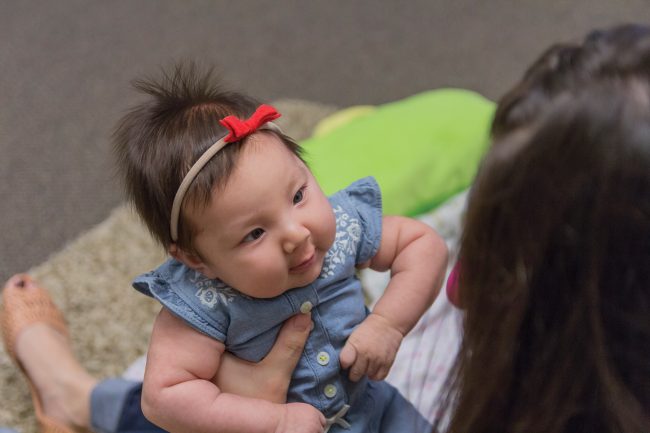Your Baby from 6 to 12 Months
By this time, you and your baby have gotten to know each other pretty well. You recognize each other’s facial expressions and tone of voice. You often know…
By this time, you and your baby have gotten to know each other pretty well. You recognize each other’s facial expressions and tone of voice. You often know what your baby is communicating, even without words. Your baby is eager to learn about the world around them, and you have lots of new ways to teach them.
Babies learn by exploring with their mouths, eyes, ears and hands. Give them things to touch, grab, push, throw and safely put in their mouth. Your baby learns more from playing and being with you than from anything else.

Every baby develops at their own pace. In general, after 6 months old babies are more active and have more control of their movements. They are also curious and learning how they can connect with you and things around them. If you have any questions about how your baby is developing, talk to their doctor or contact the Arizona Early Intervention Program.
You can learn more about ages and stages here.
Your baby’s first teeth may come in during these months. Earlier or later is also normal, though. See the Oral Health page for information about teething and taking care of your baby’s mouth, gums and teeth. And you can watch videos and learn more about helping your baby have healthy teeth here.
Most babies can go back to sleep by themselves by 6 months old. To help:

More Ways to Find Help
Centers for Disease Control — Information for parents on developmental milestones by age.
The First Things First Parent Kit was developed in partnership with Health Research for Action/UC Berkeley. © 2023 The Regents of the University of California. Additional video, graphic and other content © 2023 First Things First. All rights reserved.
Join our email list to keep up with the latest news and information from FTF